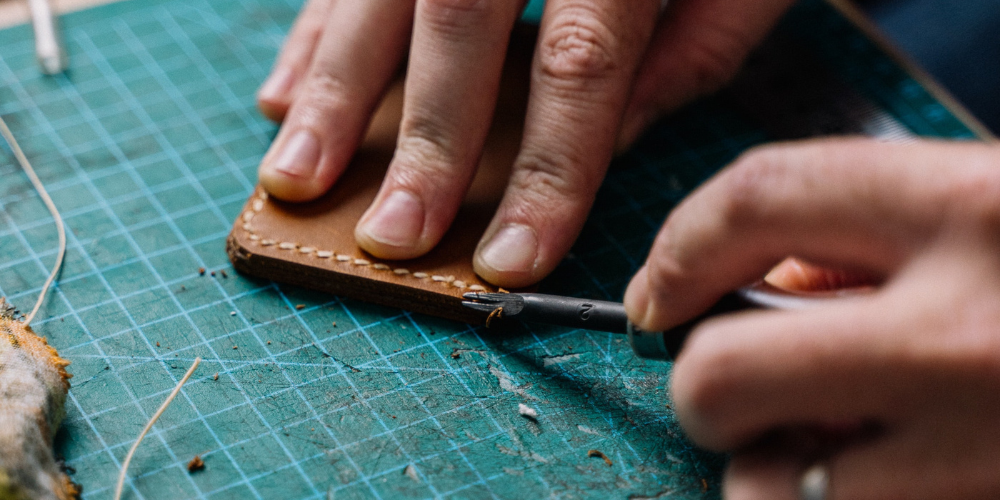Do you know that leather crafting has been in history for a long time, dating thousands of years back? Leather crafting has a cultural significance. From crafting protective garments to use as armor during wars to making stunning products, leather crafting is an ancient art; let’s know its historical presence and techniques used in leatherworking.
History of Leather Crafting
Ancient people used animal hides to create clothing, footwear, and shelter. History proves the traces of leather working in ancient Egypt, Greece, and Rome. Modern-day leather industry has evolved with new techniques in place which continue to create the same history.
Leather Crafting Techniques
It includes cutting, stitching, and tooling using a sharp blade that cuts the leather in desired shape and size. In the stitching phase, the leather is stitched with a particular thread to get the body, while tooling means carving the leather to create designs.
Types of Leather in Contemporary Leather Crafting
Vegetable-Tanned Leather
Contemporary leather artisans choose vegetable-tanned leather due to its eco-friendly nature. Natural substances like tree bark and other plant extracts are used for tanning it, which makes it durable and high-quality. Vegetable-tanned leather is used to make wallets, belts, and bags.
Full-Grain Leather
In this leather type, the top layer of the animal skin is used, resulting in a natural texture and marking on it, so it is termed whole grain. Luxury bags, wallets, and furniture upholstery are the wide-range use of such full-grain leather.
Now, here comes the question what is pu leather, then? Pu leather is synthetic or faux leather; it is not a natural form of leather but an artificial material that combines polyurethane and other chemicals to process and create a leather-like texture.
It is a cheaper and eco-friendly alternative to genuine leather. It also helps support the cause of reducing animal killing to get more genuine leather.
Cultural Significance of Leather Crafting
Leather crafting has deep-rooted cultural significance worldwide; for instance, in Mongolia, the leather jacket “deel” is still worn to protect from the harsh climate. Leatherworking was integral to Western culture, particularly cowboy or bikers subcultures.
Leather boots and jackets have been an icon of a rugged and rebellious spirit.
Contemporary Leather Crafting
Nowadays, contemporary leather crafting is a thriving industry where artisans worldwide create high-quality goods for various reasons. Contemporary leatherworking combines traditional techniques with modern technology to produce functional and stylish products.
Leather crafting is a highly customizable art form; it can be dyed, embossed, tooled, and shaped to almost any format to create a one-of-a-kind craft piece that reflects personal style and creativity.
New techniques have also introduced non-genuine leather types, helping the increasing demand for leather products with no animal killing involved.
High Demand for Leather Products
The high appreciation for genuine leather products is never dying for people, and this passion for getting genuine products is still ongoing in the current market.
Leather products have a sustainable high quality that lasts for a longer time, from their use as protective garments to making stylish accessories, progressive demand is not ending any time sooner or later.
It will continue to evolve our leatherworking industry and get evolved throughout human history.


